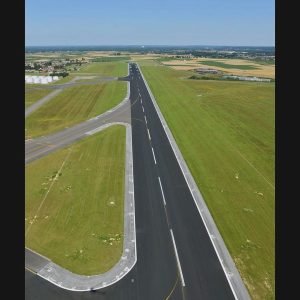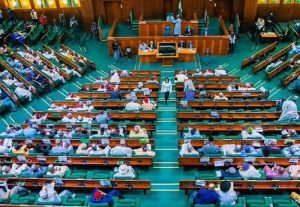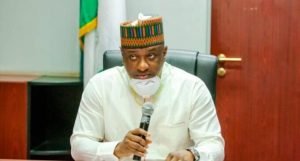
The Nigerian House of Representatives on the 30th of October 2024 called on the Minister of Aviation and Aerospace Development, Festus Keyamo, to revoke the airstrip license given to the Living Faith Church, otherwise known as Winners Chapel, located in Canaanland owned by Bishop David Oyedepo.
Advertisements
This has particularly drawn vehement concern on the effects of some of these private airstrips that exist in Nigeria, especially as it concerns the nation’s security.
Origin of Approval of the Airstrip in Canaanland

The initial permit for the airstrip that belongs to the Living Faith Church, whose headquarters is at Canaanland in Ota, Ogun State, was provided by the federal government under the leadership of President Bola Tinubu.
The Secretary to the State Government, Alhaji Abdulazeez Yinka Adeosun, represented the state governor at the event, while Bishop Oyedepo stated this during the Thanksgiving service to celebrate his birthday anniversary.
He said,
“I am certain you people will be happy to note that the federal government has agreed to have an airstrip for Canada.”
Originally, this airstrip was designed to enable direct transport for church participants as well as improve the functionality of the church.
Issues Presented by the House of Representatives

The motion to revoke the airstrip license was initiated by the member of the House of Representatives, Sulaiman Abubakar Gumi, and based on several arguments outlining the dangers of having private airstrips. He indicated that the granting of such licenses could have negative impacts on the nation’s security.
Gumi recalled previous instances where private jets were used to engage in unlawful business, such as in 2014, when a private aircraft was arrested in South Africa with $9.3 million in cash meant for the purchase of arms. He posited that the ease of the airstrips would encourage breeching of the country’s laws and even lead to increased insecurity through the importation of firearms and illicit drugs.
In support of his motion, Gumi underscored the importance of the government reconsidering its policies on the licenses of airstrips.
He said,
“Allowing private individuals, groups, or organizations to operate an airstrip will contribute to the smuggling of arms and hard drugs into the country and increase insurgency, kidnapping, and banditry, among other social vices that have a huge effect on the social-economic development of the country.”
This point of view is reminiscent of the increasing concern of legislators about the consequences of privatization of aviation facilities.
A Look into Keyamo’s Defense of the airstrip in Canaanland

In reaction to the developments, Minister Festus Keyamo came out to defend the approval of the airstrip, saying it was in compliance with the law. He said that the law allows people to put up personalized airstrips, provided that some conditions are first met. Keyamo said this:
“I personally approved the airstrip in Canaanland; the law has it; if anyone wants a private airstrip, he or she can be sure of having it granted so long as he or she satisfies the requirements.”
He explained that the application also underwent various processes to verify safety and compliance with aviation requirements.
All that Keyamo wanted to correct was the notion that the church took the decision without observing the appropriate legal process. This defense highlights the issues arising from the regulation of private aviation in Nigeria, analyzing safety and security with regard to liberties of individuals and organizations on the one hand and basic rights of citizens on the other.
The Broader Implications of the Reps’ Motion
The recent call for the cancellation of the airstrip license in Canaanland poses important questions in the provision of national infrastructure by private parties. Given various multifaceted security threats that concern Nigeria, the government should be sensitive to how privatization impacts the security of society.
The motion in the House of Representatives indicates that there is a gradual shift in opinion that some features of national infrastructure should be tightly regulated by the government to eliminate risks.
However, this state of affairs shows some of the conflict of church and religious associations with state laws. The Living Faith Church is one of the biggest and most influential religious organizations in Nigeria, and it conducts business that involves public policy many a time.
The license held by a church to operate an airstrip has been subject of some debate, especially given the capability of the said facility to be potentially misused.
The public reaction and the future consideration
The response of the public to the motion of the House of Representatives has been divided. Those in favor of the motion claim that it is justified in order to safeguard the security of the nation; in contrast, opponents state that it is an infringement on the principle of autonomy of organizations in the nation. It has attracted discourses on social media platforms and political pundits, and different voices are interested in a better way to govern private airstrips.
As things stand, it shall be imperative for the government to consult with stakeholders who include religious leaders, well-established personnel in the aviation trade, and security departments in the formulation of policies. This framework should balance the warranted apprehension of national security risks without infringing on the rights of private actors to conduct operations within the legal parameters.
Read more
[BREAKING] Ass@ult: Court grants Rep Ikwechegh N500,000 bail
Taiwo Oyedele addresses concerns of Northern Governors Forum
JUST IN: Senate begins screening of seven ministerial nominees
Conclusion
The outcome of the House of Representatives’ call for the revocation of the airstrip license in Canaanland issued to Bishop Oyedepo’s Living Faith Church shows that it is not easy to regulate private aircraft in Nigeria. As the nation still experiences severe security threats, the government is caught up in trying to balance between the state and the rights of individuals. The result of this case could mean future changes in managing private airlines for aviation and other religious organizations in Nigeria.
According to the words of Rep. Gumi, “The country now suffers security issues through illegal bringing in and distributing of firearms and ammunition, thus increasing insurgency, kidnapping, banditry, and many others”. It has become important for Nigeria to continue to be proactive on these issues as the state advances toward the need to promote the private sector while preventing the negative aspects of it from distorting the progress of the country.









